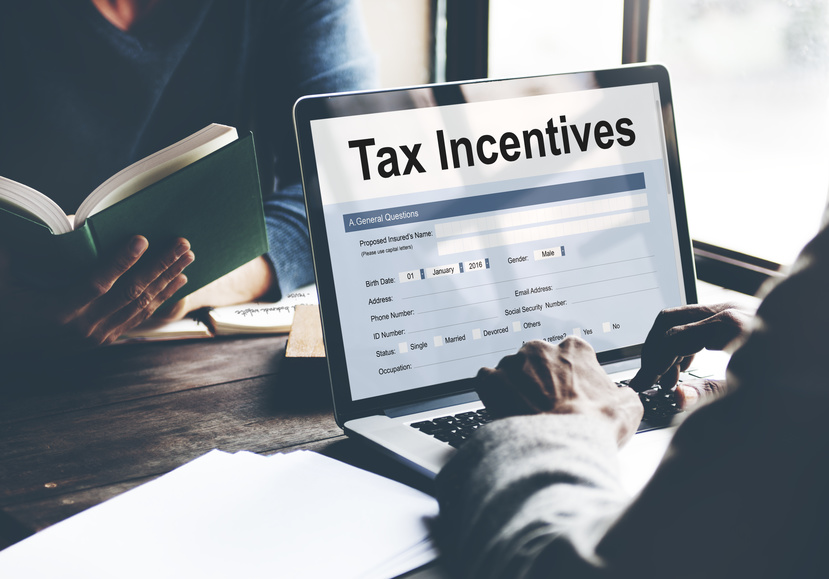 Last year, we reported on two pieces of legislation that, by proposing to amend payment in lieu of taxes (PILOT) programs, would undermine or inhibit redevelopment projects by rendering them economically infeasible or too risky. S867 requires redevelopers receiving any tax exemption pursuant to a PILOT Program to pay prevailing wages, which could potentially negate the financial benefit of the PILOT Program. S59, by requiring payment of a portion of the PILOT payment to the school district based upon a cost-per-pupil formula for each school-age child residing in a redevelopment project, would either greatly disincentivize municipalities from entering into PILOT agreements for residential projects (given the uncertainty of what revenue it would be able to retain from the PILOT payments) or result in municipalities seeking to pass this risk onto the redeveloper (which could render the project too risky or diminish anticipated returns to the point of infeasibility). To date, neither of these bills have been advanced by the Legislature since their introduction in January of 2018.
Last year, we reported on two pieces of legislation that, by proposing to amend payment in lieu of taxes (PILOT) programs, would undermine or inhibit redevelopment projects by rendering them economically infeasible or too risky. S867 requires redevelopers receiving any tax exemption pursuant to a PILOT Program to pay prevailing wages, which could potentially negate the financial benefit of the PILOT Program. S59, by requiring payment of a portion of the PILOT payment to the school district based upon a cost-per-pupil formula for each school-age child residing in a redevelopment project, would either greatly disincentivize municipalities from entering into PILOT agreements for residential projects (given the uncertainty of what revenue it would be able to retain from the PILOT payments) or result in municipalities seeking to pass this risk onto the redeveloper (which could render the project too risky or diminish anticipated returns to the point of infeasibility). To date, neither of these bills have been advanced by the Legislature since their introduction in January of 2018.
There are two additional bills that have since been introduced, both of which propose a sharing of PILOT payment revenues with school districts.
A4287 requires PILOT Programs in municipalities which are Abbott or School Development Authority (SDA) Districts to pay the full regular apportionment of the PILOT payment that it would receive under ad valorem taxes. The impact of this bill would be limited to New Jersey's thirty-one SDA Districts, which by definition are located in poorer communities that generally reap the greatest benefits from redevelopment and may be riskier areas for investments by redevelopers. Thus, while it may appear intuitive that the SDA Districts should receive a share of local PILOT payments and not be subject to exemption under PILOT Programs, this bill could undermine the goals of PILOT Programs to encourage investment in these areas.
A3969 requires payment to the school district of the full regular apportionment of the PILOT payment that they would receive under ad valorem taxes for all PILOT Programs, a requirement that would completely undermine the economic return of virtually every PILOT Program. As currently structured, a municipality and redeveloper can negotiate a win-win, with the redeveloper paying less that it would under ad valorem taxation and the municipality receiving more under the PILOT Program than from ad valorem taxation. If redevelopers are required to pay the full rate of the school portion of taxes, only the municipal portion of the taxes otherwise due are in play for negotiation, with 5% of that going to the county under current law. Since the school portion of local taxes comprises the most significant portion of the local tax bill in the vast majority of municipalities (averaging over 50%), removing this from the equation for negotiation will not leave enough room to strike a win-win in most New Jersey municipalities.
There are other pending bills seeking to add transparency and accountability to PILOT Programs. A4289 requires the New Jersey Department of Community Affairs (NJDCA) Division of Local Government Services to maintain data on all long-term tax exemptions granted by municipalities under the "Long Term Tax Exemption Law" and make that data available on its website. A1636 removes any property that has received financial assistance through the Grow New Jersey Assistance Act from eligibility for an exemption under either the Long Term Tax Exemption Law or the Five Year Exemption and Abatement Law (the Short Term Tax Exemption Law). The aim of this bill is apparently to preclude what the bill's sponsor perceives as double-dipping into public funds. Certain projects, however, might genuinely be eligible and worthy of consideration for more than one incentive program, and if an applicant meets the qualifications for incentives under the Grow New Jersey Assistance Act there is no implicit reason it should not also be eligible for a PILOT Program.
For PILOT Programs, the most potentially damaging bill is S1701, which would effectively put an end to PILOT Programs under the Long Term Tax Exemption Law. As initially introduced, this bill requires applicants under the Long Term Tax Exemption Law to provide a detailed cost-benefit analysis concerning the impact of granting or not granting the PILOT upon the municipality and other taxing districts (school boards and counties), as well as projected costs to the municipality for services associated with such project and the net financial benefit or cost to the municipality. The municipality would then be required to post this analysis on its website or provide it to NJDCA to be posted on its website. The municipality would then be required to conduct its own independent cost-benefit analysis of the proposed PILOT, which would also be provided to NJDCA.
 As introduced, S1701 would result in additional costs associated with the preparation of this cost-benefit analysis to both redevelopers applying for PILOT Programs and to municipalities considering PILOT Programs, although municipalities would likely seek to pass their costs onto the applicant. While this could potentially discourage some redevelopers from seeking PILOTs, and also inherently increases the burden of establishing a case for a PILOT, there is something to be said for assuring an actual need for and demonstrating the potential benefits of granting PILOTs - and also for providing a more transparent process that permits the public to better understand PILOT Programs. This could conceivably result in more public support for PILOTs, which are largely misunderstood and generally perceived by many members of the public simply as a tax break for wealthy developers.
As introduced, S1701 would result in additional costs associated with the preparation of this cost-benefit analysis to both redevelopers applying for PILOT Programs and to municipalities considering PILOT Programs, although municipalities would likely seek to pass their costs onto the applicant. While this could potentially discourage some redevelopers from seeking PILOTs, and also inherently increases the burden of establishing a case for a PILOT, there is something to be said for assuring an actual need for and demonstrating the potential benefits of granting PILOTs - and also for providing a more transparent process that permits the public to better understand PILOT Programs. This could conceivably result in more public support for PILOTs, which are largely misunderstood and generally perceived by many members of the public simply as a tax break for wealthy developers.
S1701 was amended in one significant respect in June 2018, following a hearing before the Senate Budget and Appropriations Committee. The bill now requires that all taxing districts receive a portion of the PILOT payment in the same proportion as property taxes. As noted previously, A3969, which only required payment to the school district from the PILOT based upon its regular tax rate portion, would likely undermine the viability of PILOT Programs in a vast majority of New Jersey municipalities. To the extent there were any municipalities where a PILOT Program may still have been viable under A3969 (the relatively few municipalities in which the greater portion of tax payments go to the municipality and county and not the school district), S1701 would assure the infeasibility of PILOT Programs in those municipalities as well, thereby effectively repealing the Long Term Tax Exemption Law. All PILOT Programs would necessarily result in a net loss to the municipality, as well as the school district and county, effectively removing any financial incentive the municipality may have to consider a PILOT. The current PILOT structure makes the project feasible by providing the redeveloper with some level of tax relief, while concurrently increasing revenue to the municipality, typically the public entity most directly impacted by the project. S1701 eliminates this structure and essentially converts Long Term Tax Exemption Law PILOTs into a simple tax abatement.
We will continue to monitor legislative developments and the efforts of industry associations and lawmakers to support rational and sensible reforms to PILOT Programs by increasing transparency and accountability while assuring that PILOT Programs remain an effective means of promoting viable redevelopment projects across New Jersey.
